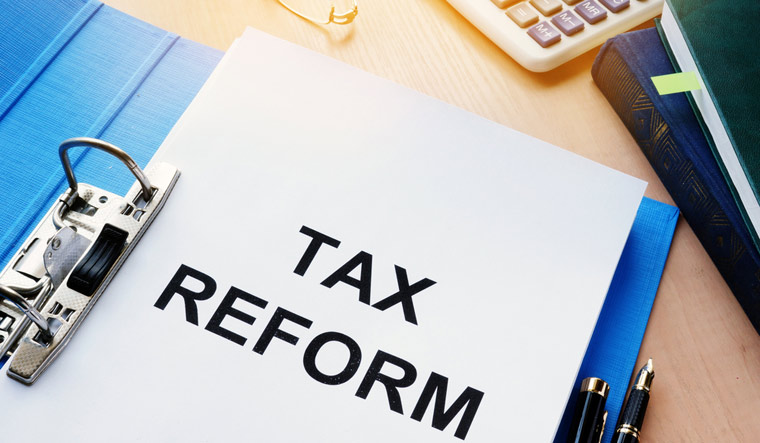Upgrading labour laws, simplifying taxation and creating a stable tariff environment are imperatives to facilitate a larger trade between India and the world, a new report said.
'Building Resilient Global Value Chain Linkages in India: Findings from an Enterprise Survey' - a report jointly published by the Observer Research Foundation (ORF) and ORF America - examines how India can better integrate into global value chains (GVCs) in the post-COVID world.
"The risks posed by supply chain shocks have never been more visible, following the compounding crises of the US-China trade war, the COVID-19 pandemic, and the Russia-Ukraine conflict. GVCs, once viewed as the silver bullet for economic development, are coming under increasing scrutiny," the think tank said in a release.
The report examines how India can better integrate into GVCs based on findings from a survey of 200 domestic and foreign companies in India across aerospace and defence; automotive and auto-components; capital goods; electronic systems design and manufacturing (ESDM); new and renewable energy; and pharmaceuticals and medical devices.
"The five greatest constraints firms face in scaling up in India were identified as: taxation rules and policies; quality of infrastructure; uncertainty in trade and tariff policy; access to capital; and availability of raw materials," it said.
The inability to meet quality standards was identified as a key challenge to GVC integration while 'Make in India' was seen as the most effective government initiative.
The study found that the most urgent policy change required to support GVC integration is investing in quality infrastructure - both physical (such as power supply and transport networks) and digital (such as clarity on data rules and data centres).
"With regard to institutions, upgrading labour laws and simplifying taxation were identified as imperatives," it said. "Creating a stable tariff environment and reviewing the link between trade and investment policy is crucial to facilitate trade."
The report also offers nine recommendations to create resilience in India's GVC linkages.
Priority areas are: identifying critical supply vulnerabilities, fostering a stable regulatory environment, harmonising logistics and transportation rules, and building policy coherence between industrial policy and related avenues such as consumer protection and the green transition.
Talking of the survey results, the report said the unanimous choice for India's trade partner was the United States, followed by the UK, and UAE. "There was little support for the Regional Comprehensive Economic Partnership (RCEP) grouping."
As many as "87 per cent of survey respondents across firms of varying sizes and sectors said that GVC integration is very important to their firms. Nearly nine out of ten respondents (89 per cent) agreed that the pandemic has impacted their perception of GVCs.
"Overly dependent and fractured production systems expose the industry to risk and create an uncertain business environment. This directly impacts both short and long-term business decisions related to scale and investments," it said.
While respondents from the auto sector identified domestic policies as the primary factor that influences investment decisions, enterprises across sectors view global macroeconomic conditions as the biggest driver of these decisions.
Over 70 per cent of respondents said India's trade policies are very important in aiding GVC integration. This was especially evident in the medical devices and pharmaceutical industry (93 per cent of respondents).
'Availability of raw materials' was highlighted as the most important factor defining foreign direct investment decisions (74 per cent respondents), and 'skilled workforce' (70 per cent) came in at a close second, the release added.





